|
Did you know that as Catholics we commemorate the month of October as the month of the rosary? The rosary calls us to reflect on thelife of Christ through the intercession of Mary, our Blessed Mother. The rosary is an invitation for us to build a relationship with Mary, so that we can better know her son. St. Thomas Aquinas once said, “As mariners are guided into port by the shining of a star, so Christians are guided to heaven by Mary.” One way to get to know Mary is by reading about her life from scripture. Mary’s words are not recorded often, and her actions seem to skim by even more subtly. Even so, the presence of her words and actions are profound, calling us to a deeper relationship with her and her son.
First, we learn from Mary that it is okay to ask questions on our faith journey. When the angel Gabriel announces to her that she will be the mother of the Son of God, she simply asks, “How can this be, since I have no relations with a man?” (Luke 1:34). To know ourselves and have confidence in what we believe, we should always be asking questions. As a teacher, I encourage my students to ask questions all of the time. Although I am not as good as I want to be myself, from Mary I can take courage to ask more questions so that I can learn and grow in hopeful faith. When Mary questioned the angel, she learned: “Nothing will be impossible for God” (Luke 1:37). And from there, we are called to take Mary’s example of humility and trust in her “Fiat” when she says, “Behold, I am the handmaid of the Lord. May it be done to me according to your word” (Luke 1:38). The second lesson that I have learned from Mary in the Bible has had the most profound impact on my life. After the birth of her son, and in the presence of the shepherds and angels, Luke records that “Mary kept all these things, pondering them in her heart” (Luke 2:19). For me, this calls me to a life of deep reflection and intimacy with God. What I keep in my heart can move me closer to God if I invite him to share it with me: the goodness of each day, the little and big miracles, and even the hard and difficult trials. With God, everything is divine and happens with purpose; it is how I react, reflect, and let him mold me with the contents of my heart that I can become most pure. Mary is the perfect model of this. She remembers God’s glory, and holds it fast to her heart. Her life is characterized by this. I want to revel in God’s glory in all things like Mary, so that I can share this joy and love with others, and trust in his goodness when trials arise. Finally, Mary’s last words in the Bible occur at the Wedding of Cana when the reception has run out of wine. She tells her son of his time to perform his first miracle, "They have no wine" (John 2:3), and it seems as though Jesus is not convinced. But next, Mary tells the servers, “Do whatever he tells you” (John 2:5) with the utmost simplicity and confidence. Not only does she know that he is capable of great things, but she knows that her son will do great things. And so we must “do,” too. This message – “do whatever he tells you” – is a call for all of us to follow the words of Christ. Mary can only lead us to her son if we submit to his will with the trust and confidence she has modeled for us. Like Mary, we too must live our life as a Fiat, “Lord, let it be done to me according to your word.” What beautiful gifts Mary gives to us to know her faith and to let her mold us to be more like her son. Do not be afraid to let Mary be the one to lead you to Christ. She is perfect, in that she knows how to live her life for God: “Mary’s greatness consists in the fact that she wants to magnify God, not herself” (Deus Caritas Est, 41). Let her help you magnify the Lord. Today I will be praying the “Magnificat,” which is found in Luke. It is Mary’s prayer of joy and thanksgiving to God. Please join me in asking for Mary’s guidance towards her son, to lead us to a life full of grace as hers. Mary’s Magnificat “My soul proclaims the greatness of the Lord, my spirit rejoices in God my Savior for he has looked with favor on his lowly servant. From this day all generations will call me blessed: the Almighty has done great things for me, and holy is his Name. He has mercy on those who fear him in every generation. He has shown the strength of his arm, he has scattered the proud in their conceit. He has cast down the mighty from their thrones, and has lifted up the lowly. He has filled the hungry with good things, and the rich he has sent away empty. He has come to the help of his servant Israel for he remembered his promise of mercy, the promise he made to our fathers, to Abraham and his children forever.” Luke 1:46-55 *This post was originally published on 10/20/2015*
1 Comment
On October 22nd, we celebrate the feast of St. John Paul II, a saint of our times! He is remembered for many things, including his passion for the arts, outdoors, youth, and families. St. John Paul II also had a deep devotion to Mary, and in what I know of St. John Paul II’s life and loves, we can bring no greater joy in celebrating his sainthood than by honoring our blessed Mother.
St. John Paul II’s favorite prayer was the Rosary, and I too, have developed a fondness for praying it. I stumbled upon a recording a couple of years ago in my desire to pray it intentionally. As I would listen and pray along in my car every morning before work, I discovered a love for each mystery and the fruit they bear, as like Mary, I “pondered them in [my] heart” (Luke 2:19, 51). The mysteries of the Rosary invite us to contemplate the life of Christ through the memories of Mary. St. John Paul II says remembering these mysteries “were to be the ‘rosary’ which she recited uninterruptedly throughout her earthly life” (Rosarium Virginis Mariae, §11). In this remembering, the account of the Gospel from the eyes of Mary are timeless, “not only belong[ing] to ‘yesterday’; they are also a part of the ‘today’ of salvation” (John Paul II, Rosarium Virginis Mariae, §13). In this, St. John Paul II reminds us that the Rosary is an invitation to participate in Christ’s divine life, and it is relevant across time to the faithful of all ages. Recently my routine for praying the Rosary has changed as I am now on maternity leave and spend the day taking care of my newborn daughter. Instead of rushing to get my two-year-old son into the car and dropped off at daycare before work and enjoying my prayer time alone in the car, we have the opportunity to hop in the stroller and walk to daycare, spending time together saying hi to neighbors and marveling at the changing of seasons before he starts his school day. Despite the enjoyment both my son and I get from these walks, in the transition of summer at home with mommy to school, and the transition from being an only child to living the realities of being a big brother at only two years old, for quite a few weeks my son was not happy about leaving home for the day. Although my son loves school, he was hating drop off, and his anxiety (and let’s be honest, mine, too) crept in the closer we got to school each day. One morning as I was trying to get him excited for the day, I asked him if he wanted to pray the Rosary with me, telling him it always brings me calm and comfort, and he said yes. I told him I would let my recording play, and I would tell him the stories of each mystery. Thus began a new routine for us each morning. As the Joyful Mysteries play, I tell him about how much Mary loved God that she said yes to being Jesus’ Mommy, and how we pray that we can love God like her and say yes to Him when he needs us to. When the Luminous Mysteries play, I tell him about Jesus’ first miracle, turning water into wine at the Wedding at Cana, and that through Mary, she will lead us to Jesus and help us see the miracles he’s performing in our own lives. In praying the Sorrowful Mysteries, I am very closely brought to tears as I think about explaining death to a toddler, and moved by Jesus’ sacrifice for us, telling my son that no sin stops Christ’s love for us. We pray to be good people and follow the will of God. And when we pray the Glorious Mysteries, I get to teach my son about the glories of the Holy Spirit and Heaven, praying for our ultimate happiness with Jesus, Mary, and all the saints. In praying these, I am in awe of how parenting is transforming my heart, teaching me to be like a little child, loving Jesus without abandon like my son does. By the time we’ve prayed our Rosary for the day, we’ve arrived at daycare. Filled with his spunky confidence and newfound graces, my son hops out of his stroller and says “let me give you a kiss for the road,” and sends me off on my way. Each day, he runs off to the playground to play with his friends, and I am amazed by the graces we’ve both received by praying the Rosary together. In his great love for both the Rosary and the family, St. John Paul II called families to pray this prayer together, acknowledging how its graces unite the family: Individual family members, in turning their eyes towards Jesus, also regain the ability to look one another in the eye, to communicate, to show solidarity, to forgive one another and to see their covenant of love renewed in the Spirit of God. Many of the problems facing contemporary families, especially in economically developed societies, result from their increasing difficulty in communicating. Families seldom manage to come together, and the rare occasions when they do are often taken up with watching television. To return to the recitation of the family Rosary means filling daily life with very different images, images of the mystery of salvation: the image of the Redeemer, the image of his most Blessed Mother. The family that recites the Rosary together reproduces something of the atmosphere of the household of Nazareth: its members place Jesus at the centre, they share his joys and sorrows, they place their needs and their plans in his hands, they draw from him the hope and the strength to go on. (Rosarium Virginis Mariae, §41) From daycare drop-offs to contemplating our family’s deepest sorrows and joys, we too as a family have found this hope and strength of the Rosary to be true and timeless. As we prepare to celebrate the Feast of St. John Paul II, I invite you to honor him and our Blessed Mother by taking the time to pray the Rosary, finding twenty minutes of your time to devote to contemplating the face of Jesus. St. John Paul said, “a prayer so easy and yet so rich truly deserves to be rediscovered by the Christian community… I look to all of you, brothers and sisters of every state of life, to you, Christian families, to you, the sick and elderly, and to you, young people: confidently take up the Rosary once again. Rediscover the Rosary in the light of Scripture, in harmony with the Liturgy, and in the context of your daily lives” (Rosarium Virginis Mariae, §43). Know of my unending prayers for you as you begin this rediscovery of the Rosary for yourself, as with Mary, you too ponder these mysteries in your heart and recognize their fruits in your life. St. John Paul II, pray for us! Our Lady of the Rosary, pray for us! *This post was originally published on October 22, 2019. When the COVID-19 pandemic began and so much seemed outside of my control, I turned to prayer as a source of comfort, nourishment, and stability. Favorite Catholic podcasts, powerful homilies, Gospel-inspired music, Scripture reading, and devotions like the Rosary kept me grounded in a higher reality than the confusing, dark, and humbling one I faced. Perhaps I felt the need to overcompensate in a time when I couldn’t physically receive the Eucharist. The lack of physical Communion meant I searched for spiritual, mental, and emotional communion with the Lord in other ways I found fruitful. In this way, times of trial can bear much fruit—suffering sharpens our eyes to the eternal and true. It is sobering. Surrendered to God, suffering can be the most direct path of conversion and redemption. As the pandemic continued and I was able to adjust to my new “normal,” my sense of emergency slowly began to fade. I found ways to be comfortable and to continue meeting needs like friendship, worship, and rest. No, everything was not as it had been. Life was still a shadow of its former glory. And yet, I had found ways to cope. As this trajectory continues with the reopening of society in many ways, I have begrudgingly found that my deep prayer life has slowly faded. Becoming more of a checklist than a time of renewal, my prayer time is filled with distraction and noise. I’ve come to realize that I would rather fill my time with the noise—albeit good noise—of a Catholic podcast or homily instead of turning everything off and filling my time with God Himself. I’m more comfortable hearing others talk about God and their spiritual insights than talking to God. I’m also more comfortable talking AT God than WITH Him. I have a lot to say, but am not spending time listening or receiving. Finally, once I do settle down to pray, my tasks, chores, and rambling thoughts bombard me. My prayer time is filled with noise and distraction. Why is it easier for me to scroll through a newsfeed of beautiful images and consumer goods than to thumb through my Rosary meditatively? Why is it easier to respond at all moments to the latest texts in a never-ending group thread than it is to respond at all moments to the promptings of the Holy Spirit? Why is my heart more easily captured by the words of the media than by the Word of God? For perhaps the millionth time, I must face again a thorn in my side that prevents me from greater holiness: noise. “Noise, the grand dynamism, the audible expression of all that is exultant, ruthless, and virile—Noise which alone defends us from silly qualms, despairing scruples, and impossible desires,” says the demon Screwtape in C.S. Lewis’ classic, The Screwtape Letters. He continues, “We will make the whole universe a noise in the end. We have already made great strides in this direction as regards the Earth. The melodies and silences of Heaven will be shouted down in the end.” Lately in my life, it seems like Screwtape and his friends are succeeding. I’m having trouble hearing the melodies of Heaven amidst all the noise. And can’t we all admit to knowing this deep down—that much of our lives is an endless stream of noise and distraction threatening to drown out the still small voice inside? I reflect on these things once again while reading a powerful book and meeting virtually with other women--This Present Paradise: A Spiritual Journey with St. Elizabeth of the Trinity. Elizabeth, through the author Claire Dwyer, is shaking me from my complacency and passing through the distractions to help resurrect my heart. This young French Carmelite nun who lived over a hundred years ago mastered the interior life of prayer and encourages all to do the same—regardless of their vocation in life. I know I am called to more than what I’m filling myself up with; an hour of scrolling through items on sale or watching a home renovation show will never compare to fifteen minutes of virtual Adoration or a few decades of the Rosary. Any time consecrated to God is not returned unsanctified. In times of greater stability, comfort, or complacency, I’m also reminded of the Scripture passage about the wise virgins at the gate. We are called to fill our lanterns with oil as we await the Bridegroom so that we will be prepped and ready for His return. I have personally found that my preference for news feeds, shows, or internet browsing fills my lantern with something akin to water rather than oil, and so I am using this season of Ordinary Time to recommit to a quieter, more fruitful prayer life. Below are a few things I have found helpful for overcoming spiritual distraction and ensuring daily prayer:
As the world continues to reopen in ways that give us hope, I invite you to reflect on your prayer life throughout the pandemic months and set goals for yourself during this season of Ordinary Time. In the end, may we find that the melodies and silences of Heaven triumph over the noise of the world. We may be well-acquainted with Lenten practices and devotions such as giving something up, abstaining from meat, or praying the Stations of the Cross. It can be more difficult, however, to name ways to observe the Easter season.
Yet in the Preface of the Eucharistic Prayer at every Mass during the Easter season, we hear: “It is truly right and just, our duty and our salvation, at all times to acclaim you, O Lord, but in this time above all to laud you yet more gloriously, when Christ our Passover has been sacrificed… Therefore, overcome with paschal joy, every land, every people exults in your praise and even the heavenly Powers, with the angelic hosts, sing together the unending hymn of your glory…”[1] What is “paschal joy” and how do we praise the Lord “more gloriously” in the Easter season? It is unreasonable to expect anyone to will themselves to be happy at any given moment, much less for an entire season. But joy is not the same as happiness, nor is it the absence of sadness. Joy is a fruit of charity. It flows out of love; it results from a participation in goodness. We feel joy in the presence of someone or something we love; we rejoice in the well-being of our loved ones. If our Lenten observance is focused on charity—particularly acts of charity such as prayer, fasting, and almsgiving—then joy flows naturally from them. The disciplines that turn our gaze outward to God and neighbor, the sacrifices we make, are all a participation in goodness, an act of love. Paschal (Easter) joy, then, can be seen as the fruit of our Lenten journey. Our Lenten efforts are not meant to be temporary measures. They are intended to effect lasting change in us, to conform us more profoundly to our Lord who died but has been raised. What can we do then, so that we don’t simply drop our Lenten observance now that Easter has arrived? How can we instead allow these observances to take root in such a way that they enable us to celebrate the Easter season more fully and joyfully? Consider one or more of the following suggestions to cultivate paschal joy and fill each of the fifty days of the season with festivities and devotions:
Click here for more resources to accompany you this Easter season. [1] Preface I-V of Easter, Roman Missal, Third Typical Edition. [2] Directory on Popular Piety and the Liturgy, no. 150, no. 152. [3] Directory on Popular Piety and the Liturgy, no. 153. [4] Directory on Popular Piety and the Liturgy, no. 154. [5] Directory on Popular Piety and the Liturgy, no. 155. [6] Cf John Paul II, General Audience, Wednesday, 30 May 1979 Yesterday we celebrated the Memorial of Our Lady of the Rosary--a Feast Day that reminds of the important role that the rosary plays in our daily lives. It is a form of prayer that we seek when we are struggling and need the comforting embrace of a mother. It is a form of prayer that is joyful, celebrating our successes with Christ through Mary.
Devotions to Mary have always been an important aspect of my faith. In particular, the rosary has helped me through many tough times in my life and given me the strength to continue forming my life to Christ, but its importance was reinforced in the first few months of my college career when I joined the Knights of Columbus. Upon entering the Order, Knights are given a rosary as a symbol of our devotion to Mary and a reality of our reliance on her example and her intercession with God But why should we say the rosary? Saint John Paul II gives a clear picture of the rosary’s importance: “The Rosary mystically transports us to Mary's side as she is busy watching over the human growth of Christ in the home of Nazareth. This enables her to train us and to mold us with the same care, until Christ is “fully formed” in us.” When we pray the rosary, many of us are seeking the warm embrace of a mother, someone who can reassure us in our fears and give us the strength to live out each day for Christ. Mary is our mother in every sense of that word. Christ, moments from death, says to Mary, “Behold, your son,” and to the disciple whom he loved, “Behold, your mother.” With these words Christ gives Mary to all of us as our mother, the Mother of the Church, and with these words we are formed by her just as Christ was. The rosary does not pull our attention away from Christ, but rather joins us with him through our love of Mary. John Paul II tells us in Rosarium Virginis Mariae, “Never as in the Rosary do the life of Jesus and that of Mary appear so deeply joined. Mary lives only in Christ and for Christ!” The rosary allows us to participate in that union and calls us to share in the life of Christ through our relationship with his Mother. Each time we pray the rosary we focus on the Joyful, Sorrowful, Glorious, or Luminous mysteries. These are not only drawing us closer to Mary, but to the life of Christ as each set of mysteries is grounded in the Gospel. When we pray the rosary we do not just repeat prayers over and over again, but rather we are given the opportunity to live out a different aspect of the life of Christ with each decade. Repetition is an important aspect of the rosary, but is it actually repetition? Archbishop Fulton Sheen in his book “The World’s First Love” tells us that it is not repetition for each time we say the rosary, “we are saying to God, the Trinity, to the Incarnate Saviour, to the Blessed Mother: "I love you, I love you, I love you." Each time it means something different, because, at each decade, our mind is moving to a new demonstration of the Saviour's love.” Who better to remind us of the Christ’s love than Mary, the Mother of God, our mother, who raised Jesus, formed him, and followed him. Who better to emulate than Mary, who watched her son suffer and die on the cross for our salvation. Each time we say the rosary we are embraced by our mother, we are renewed in our faith, and we are reminded of God’s love. “Remember, O most gracious Virgin Mary, that never was it known that anyone who fled to thy protection, implored thy help, or sought thine intercession was left unaided. Inspired by this confidence, I fly unto thee, O Virgin of virgins, my mother; to thee do I come, before thee I stand, sinful and sorrowful. O Mother of the Word Incarnate, despise not my petitions, but in thy mercy hear and answer me. Amen.” *This post was originally published on October 7, 2014. Nicholas Shields is a young professional from Washington, D.C. I must admit – the isolation that comes with social distancing during the Covid-19 pandemic is hitting me with waves of cabin fever and missing friends and family terribly. I’m incredibly thankful I am able to “quarantine” with my husband and dog, while at the same time I mourn the social engagements of seeing family, friends, and co-workers in person. My husband and I recently got married in May, and we’ve become parishioners of our local church. With our marriage came a move for me, as we previously had a long-distance relationship. When I’ve moved in the past, I’ve typically sought friendships and activities through my local Catholic church; finding my church family is always my first step in getting accustomed to a new town. Social distancing and canceled or online events make forming those relationships and feeling connected more challenging. It’s hard enough without a pandemic to be the new person! Many moments throughout the day, I ask myself why I find it so difficult to be away from others. After prayer and reflection, I realized seclusion is hard because God created us for community. God gave Adam a partner and said it wasn’t good for man to be alone (cf Genesis 2:18). We need a support system - the Body of Christ. In Matthew 18:20, Jesus says, “For where two or three are gathered together in my name, there am I in the midst of them.” When we encounter others, we are assured God is with us. This is especially felt when we have a Bible study, small group, or other faith-sharing activities with our fellow Christians. Hebrews 10:24-25 says, “We must consider how to rouse one another to love and good works. We should not stay away from our assembly, as is the custom of some, but encourage one another, and this all the more as you see the day drawing near.” This passage served as a wake-up call to me. I think of how much more I can do to check in on friends, family, neighbors, and coworkers, and to find creative ways of showing love. I want to share a few ideas of some actions that have helped my family and me cope through the isolation that comes with this current pandemic. 1.Call 1-2 People Each Week or Write “Snail Mail” Letters. My mom started calling one to two friends a week from church to check in and see how they were doing. She told me how much she enjoyed catching up with her friends and it meant a lot to her friends as well. I have done the same, and it’s so refreshing to hear my friends’ voices and what they are up to. I’ve also been sending cards for birthdays and ‘thinking about you’ notes or texts as well. 2.Consider Participating in a Virtual Rosary Recitation with Others. Friends of my mom’s invited her to say a daily virtual rosary with them. Together from their individual homes, they pray the Holy Land rosary with Fr. Mitch Pacwa. My mom has shared with me how much she enjoys talking with her friends after the recitations about the holy sites where mysteries of the rosary took place. 3.Make Donations. Many people are still in need of toiletry and food items. Food banks and other charitable organizations are continuing to provide services. Consider calling a local charity to learn about their donation protocols as some are taking items by appointment and need some items more than others. 4.Try Daily Mass. In July I felt very far from God. It had been two months since having the Eucharist at my wedding. I spoke with a friend who encouraged me to try attending daily Mass since fewer people were attending in person compared to weekend Masses. After attending daily Mass, I felt more in communion with God and with my fellow Catholics. My husband and I continue to attend Mass in person on Fridays and now on Sundays. My church, like many, encourages mask-wearing and has employed other precautions, such as seating arrangements, for everyone’s safety. Recently, one of the Brothers of Hope at my church approached us to introduce himself as he hadn’t met many folks, especially young adults like him. By reaching out, this Brother made us feel more connected to our parish and to fellow Catholics. 5.Enjoy Nature or Take a Walk Around Your Neighborhood. My husband and I have been taking our dog for walks in the neighborhood. We see many of our neighbors having socially distanced dates from their driveways, which is encouraging. For a change of scenery, we went to our local botanical gardens and have planned nature trail walks. 6.Aid Elderly Neighbors or Family. Check-in on family members and neighbors who may be elderly or immunocompromised to see if they need help with errands so they don’t have to enter stores. Sometimes, they may just need a friendly voice to chat with on the phone. 7.Have Socially Distanced Friend/Family Dates. If you’re comfortable with the idea, you can still enjoy seeing friends and family in a limited number either at one another’s houses or at a restaurant. Separately, we’ve seen a couple who are close friends with us as well as my husband’s parents about once a month. We keep these interactions socially distanced, wear masks, and use plenty of hand sanitizer. For more ideas on growing spiritually during COVID-19, please click here. I stumbled into entrepreneurship in 2016 after studying philosophy, theology, and anthropology for my undergraduate and graduate degrees. Ending up in the business world felt like a long and winding road filled with sleepless nights, much discernment, and many conversations. In the few years after graduating from college, like many early 20-year-olds, I felt untethered and unsure of my direction. What was my direction in life? What was my mission? How did the Lord want me to use my gifts and talents to serve him? At the time, I attempted to answer these questions by searching for women who had accomplished work in the same field that I was going into. I spent endless hours looking for women on LinkedIn in their 40s and 50s who had achieved a successful career while also being married and raising a family. My search was futile. Although I did find a couple of single Catholic female entrepreneurs to connect with, for years, I felt like I was “making it up as I went along”: trying to weld married and family life while scaling a business, hiring and firing employees, serving clients, and trying to keep God in the center of it all. Every vocation for women within the Church is beautiful and worthy, but being a Catholic entrepreneur in particular has been challenging. Although I have developed some great friendships with secular business women, I can’t connect with them fully about discerning business decisions with my spiritual director or praying a daily rosary for my employees. Within the Catholic sphere, I can’t completely relate to stay-at-home mothers or women who are working a 9-5. I desperately needed a mentor but could not find one who was willing to devote time and effort to my growth. Speaking to women’s particular vocation, Pope John Paul II in Mulieris Dignitatem spoke to every woman’s calling to love: “The moral and spiritual strength of a woman is joined to her awareness that God entrusts the human being to her in a special way. Of course, God entrusts every human being to each and every other human being. But this entrusting concerns women in a special way - precisely by reason of their femininity - and this in a particular way determines their vocation”. Here, Pope John Paul II illuminates women’s ability to “receive the other” because of the design of their femininity. Through their motherhood, spiritual and physical, women are capable of receiving, knowing, and loving others in a manner different to men. God entrusts humanity to women, knowing that she is uniquely made to care for those around her. This act of entrusting carries through to every aspect of our modern world, including the sphere of business. Just as a mother nurtures her family, every woman in business has the mission to nurture those in her care: her clients, her employees, her colleagues. In a special way, Catholic women entrepreneurs co-create with God to create something out of nothing. Every woman-owned-business begins as merely a dream placed on her heart. Her mission is to share with the world her services and products—glimpses of God’s own heart and a genius that only she can share. This is why mentorship is essential: so that women who are called to practice business can find and live out their own unique mission in this world. Women are called to cultivate the gifts and talents of others, to foster the dreams that only they can bring forth. A mentor provides guidance, critique, and reassurance as a young person matures. This is crucial to the formation of any woman, entrepreneur or not, but also fulfills the role of each Christian to evangelize the world. Without this relationship, one might not have the tools and resources to realize their full potential. By fostering the gifts and talents of others through mentorship, women are living out their feminine genius. My Co-Founder, Emma Moran, and I created Catholic Women in Business in 2018. CWIB is an online resource of Catholic women who are seeking to live a life of faith while striving for excellence in their careers. We hope that it’s a space for women to cultivate mentorship and connection. My dream is to initiate a movement where there is more mentorship available within the Church, for women and men. In encouraging these relationships, I believe we will be able to activate the missions of those within our communities, answer the Church’s call to a New Evangelization, and to bring forth the Gospel into our society. "…we constantly find the tension between what man is and what he would like to be; between that which has been realized and that which remains to be accomplished. And it is patience which endures this tension." -Romano Guardini, Learning the Virtues That Lead You to God, 1963, 39. It turns out I really am not a huge fan of working out. After retiring from professional soccer in 2018, I’ve found it quite difficult to motivate myself to exercise when it is not formally baked into my day and when I am not paid to do it. I like being fit, but not the effort and time it requires. There is another reason, however, that I do not like working out, which is: I am impatient. Rather than committing to a regular schedule and planning the workouts to be manageable in difficulty, I go sporadically and push myself to a near death experience. Every. Single. Time. Behind my mindset is a deeply embedded impatience with the process of becoming fit. I want the result without the process—which is not possible. I want to become fit through the course of one rigorous workout and overstep the gradual process that it takes to become a fit person. In sports there is the common—and helpful—phrase of “trust the process.” What this means in the sporting world is that there is a necessary process of development that every athlete must go through in order to become good or great at his or her sport. It means that no one can go from ‘beginner’ to ‘expert’ without passing through ‘proficient’. There is a development in sport—and life—lodged in the school of gradual growth rather than immediate transformation. This frustrates us. All of us have some idea of who we would like to be, which is then immediately confronted by the reality of who we are. What enables us to endure this gap between idea and reality is what we call patience. Patience is needed where there is a desire not yet fulfilled. Case and point—my workout saga. I want to be fit (idea) but am not (reality) and therefore need patience to trust the gradual process of becoming fit. Patience is the virtue needed to shorten the gap and become who I want to be. There is another phrase in athletics related to “trust the process,” which is, “love the process.” What this means is that the best thing an athlete can do on the road to athletic development is not only trust that skill is only developed over time with effort, but that coming to enjoy that slow and gradual development is an extremely beneficial thing. The great athletes do this. There’s a reason you hear so many stories of the best athletes, from all different sports, being the first at practice and the last to leave. They fall in love with the process of becoming better. Apart from a commitment to the process there is no greatness. We must come to trust and love the “process” of being made holy. When I came into the Church in 2015, I was on fire. I wanted to: be a priest (while I was engaged to be married), learn to pray the Rosary, read St. Faustina’s diary and St. Teresa of Avila’s autobiography, make a pilgrimage to Fatima, know the 2000+ year history of the Church, and learn Biblical Greek (all of these are true and I tried to do all of them with the exception of become a priest). I wanted to become a saint overnight. However, I didn’t quite realize that’s typically not how God works. He knows—because He made us—that if He sanctified us too quickly, we’d be tempted into thinking we are responsible. So, just like every natural thing on earth, our spiritual lives develop organically over time, with much difficulty, slow progress, victories and defeats, deaths and resurrections, all for the purpose of maturity. Sanctification—growing in holiness—is a process just like anything else that is real in this life. Character does not suddenly emerge, wisdom is not haphazardly acquired, and virtue is not cheaply gained. All of the things that pertain to our nature—that is what makes a person a person—come by way of the long, winding, and arduous road. We must come to love the road. Guardini points out that—in our spiritual lives—it is often patience with ourselves that is most needed. We see who we would like to be and the faults of who we are. There is a saint in the distance but a sinner in the mirror. All of this is a call to patience—not despair. “Patience with oneself…is the foundation of all progress,” says Guardini. The gap between who we are and who we would like to be is not so much a condemnation on ourselves but an invitation from God to dream bigger, to trust in His grace, and to patiently enjoy the journey. “He who wishes to advance must always begin again,” Guardini continues, and this takes strength. It is easy to float through life without ever attempting the effort necessary to gradually grow, or the effort to begin again, or the effort to examine oneself, or the effort to admit you desire more. The virtue of patience requires strength—an interior strength that can withstand the assault of failure on our ego. Strength to call things as they are. For “only the strong man can exercise living patience, can take upon himself again and again the things that are; only he can always begin anew.” This is a living patience—one capable of enduring “the process” with joy trusting in the direction of one’s life. Jesus, may we all trust in your grace over our efforts and patiently trust the process that is your grace working in us for our sanctification. Help us to learn to be content where we are, focus on what is in front of us, and be satisfied with small steps, realizing that small steps are a big deal. May we be granted the strength to endure our shortcomings in all things, but especially our spiritual lives. May we look to your goodness, mercy, and transformative love and trust that you are leading us—slowly, gently, and for our own good—exactly where we are meant to go.
3/31/2020 Altered States: Living With Adult Children During Coronavirus | COVID-19 ResourceRead NowAs parents in our early sixties, living in household with our 25, 23 and 19 year old adult children is proving to be an interesting challenge during this pandemic. We have successfully transitioned from training six little ones to launching three and sharing our household with the remaining three. Each of us lives what I consider ‘parallel’ lives under one roof. We all go to our respective jobs, enjoy our own friend groups, and participate in our specific extra-curricular activities, along with sharing family time together. It is a state of life that has forged a certain routine that is pleasantly habitable. Slam dunk us all into the middle of an unprecedented disease that turns our world upside down overnight – and our happy coexistence becomes challenged. We are forced to adapt to new schedules and new restrictions that we all must willingly cooperate with. Moving from government recommendations to ‘imposed sanctions’ is met with varying reactions from the five in our household. Those of us who are easily contented engaging in solitary activities are not so affected. We find new books to read, projects in the house or the yard, a nature series to watch, extra time to participate in the Chaplet of Divine Mercy, the Rosary and the Mass on tv. Those of us who are energized by hanging out with our peer group, attending public events, or going out to restaurants and pubs find these restrictions close to being imprisoned. Our foremost responsibility as parents during this uncertain time is to be very intentional in communicating with our young adults about the ‘rules’ and the ‘whys’ and the ‘wherefores’ of cooperating in a Godly manner to all of this. We speak daily of the importance of adhering to social distancing and the extra measures of hygiene and disinfecting while allowing our children to express their frustrations, share new information, and ultimately come to agreement to remain steadfast in cooperation when it is difficult. I can’t stress enough the necessity of speaking daily in a positive manner so that we all help keep each other accountable. Getting independent, self-sufficient young adults to operate from the same page is most definitely a tight rope act. I’m accompanying them in a way I never have before. It requires lots of talking and more listening. It necessitates creative ways of encouraging. Each family dynamic is different, but in my male-dominated household, what I have found brings us together is food. My plan these days has been to cook, cook, and cook some more! Preparing meals that satisfy and draw us together opens us to sharing our thoughts and feelings and encouraging one another with what we find most difficult. In our discussions, our adult children share their creative ways they have found to connect with friends and to cope with the temporary suspension of activities they regularly participated in. Our pace of life has slowed considerably. My job is on temporary shutdown, but everyone else still goes to their jobs on altered shifts with no work meetings. When they arrive home, I make sure a meal is ready and we talk and pray and relax together. They are quicker about getting their laundry done, and helping keep common areas of the house disinfected every day. This altered state of living builds character in each of us. We are being called to willingly forego engaging in activities we love for the greater good of our fellow man. Practicing restraint, perseverance, respectfulness, and kindness allows us to grow in holiness that builds up the kingdom of God. This witness promotes community and joy amidst the pain and devastation that is all around us. One activity we have purposely not engaged in during this pandemic is watching or reading the news regularly. We do not watch any major news telecasts and keep apprised of current affairs through government messages and the several medical people in our family. We choose not to obsess on what is happening hour by hour. Instead, we focus on praying, eating well, getting extra sleep, playing games, watching movies, reading books, and pursuing our hobbies in our home space. We essentially have created our own little bubble to weather this storm together while continuing to participate in our normal duties to the extent that complies with social distancing. We are fortunate to live in a digital age where we can access a degree of connectivity through our various devices and remain a safe distance apart. We were created to be relational. We do not want to live this way solely, but we have the privilege of being connected to others like no other time in history. So far, in our semi lockdown mode – no one has blown up at another, no one has a crazed look about them, no one has run away! We are all present and accounted for under one roof amidst significant life changes. Our home remains a sanctuary of harmony and peace. This altered state of living together is a fruit of ‘grace’ that I believe God is showering on us. He is equipping us as we pray with the virtues of prudence and perseverance. He is covering us with His balm of peace to behave respectfully and kindly to one another. I am mindful of my continued dependence on the Holy Spirit’s grace to guide me as a mother. My prayer is for parents everywhere to walk in faith with your children in the will of God and grow in peace and joy together, whatever the circumstances! On March 7, my husband threw a surprise party to celebrate my 30th birthday. That would be the last time I would physically spend with many dear friends for at least a month. It was at the beginning stages of the coronavirus pandemic when the United States seemed to just barely be grasping what was going on across the Atlantic. We were aware but unafraid. The virus was like the flu. It only affected the elderly and those with compromised immune systems. It wasn’t a big deal. We would be fine. But around that time, my family began to take the notions of staying home, social distancing, and self-quarantining seriously. Each day brought more news. So we spent time outside. We tried to stay 6 ft apart. We bought a few more groceries than usual. We began to lay low. Almost three weeks later, I write from home, having gone “out” less times than I can count on my fingers apart from family walks, romps to open fields, or our backyard. No grocery stores. No movie theaters. No social events. No playgrounds. No libraries. No stores. No Masses. I haven’t had to “try” to make Lent this year somber or serious. Every day is a fast from something I deemed important to my life: a fast from physical friendship; a fast from community in the way I’m used to living it; a fast from outings, from the sheer independence of being able to step out of my house and go where I want to go when I want to. This fasting has been humbling. Prayer is the rhythm to my day. It is the breath of my days. The heartbeat. I watch online daily Masses or reflections on the Scriptures. I pray the rosary by myself or with my husband and children. I sing the Divine Mercy chaplet. I continue a novena. I make a spiritual communion with tears in my eyes. I utter supplications for others throughout the day. I offer my fasts—both the voluntary and involuntary—for our world. At the beginning of this Lenten journey, I shared how I thirsted to emerge from spiritual mediocrity. Now I thirst for God himself. I yearn to join the Body of Christ once again in the sacraments and receive him at the Eucharistic table. I live Paul’s exhortation to pray without ceasing in a profound way. And yet God has been so good. And peace prevails in my heart. I have so much to be thankful for: continued jobs and paychecks, long days of sunshine and warm weather, our health, food on our plates, a roof over our heads, snuggles with my children, reading books in our indoor tent, video calls with friends and family all over the country. In spite of everything, we are together. In spite of everything, God is here. In spite of everything, there is always hope. Let us continue to “rend our hearts” this Lent by turning to God and giving him everything we are feeling right now: exhaustion, confusion, anxiety, disillusionment, anger, despair, or fear. We can approach the one who became a vulnerable child for us and give him our own insecurities and vulnerabilities. At the manger, we will be met with his never-ending love. In his homily for the fourth Sunday of Lent, Fr. Mike Schmitz noted that God did not make an unbreakable world. Though he created perfectly, he instilled in mankind the ability to have free will—the ability to break our relationship with God by introducing sin into the human condition. Death, pain, suffering, temptation—all is the result of sin. This pandemic is more evidence of this truth. What matters, however, in the midst of our suffering, is that God does not abandon us to it—nor has he ever. Scripture recounts the story of God’s unfailing love for humanity since the Fall—a story of salvation that continues personally with each of us today. God does not promise fulfillment on earth, perfect joy, blessing, and comfort. He promises the cross, daily. But he also promises us that he will be with us always—even to the end of time—that he came to give life in abundance, that we can be transfigured, and that there is resurrection. He invites us to complete satisfaction and joy with him in Heaven for eternity. And in the meantime, as we continue on our own personal journeys in this “vale of tears,” he remains waiting for us at the well. Inviting us on the shore. Looking for our return on the horizon. Feeding us at the table. He remains pouring out all for us on the Cross. He remains. As we continue to navigate this Lenten season, the coronavirus pandemic, and the approach of Easter, let us go to him with humble hearts. “Let us allow ourselves to be loved, so that we can give love in return. Let us allow ourselves to stand up and walk towards Easter. Then we will experience the joy of discovering how God raises us up from our ashes.” -Pope Francis (Ash Wednesday Homily, 2020) Today we celebrate the feast of St. John Paul II, a saint of our times! He is remembered for many things, including his passion for the arts, outdoors, youth, and families. St. John Paul II also had a deep devotion to Mary, and in what I know of St. John Paul II’s life and loves, we can bring no greater joy in celebrating his sainthood than by honoring our blessed Mother. St. John Paul II’s favorite prayer was the Rosary, and I too, have developed a fondness for praying it. I stumbled upon a recording a couple of years ago in my desire to pray it intentionally. As I would listen and pray along in my car every morning before work, I discovered a love for each mystery and the fruit they bear, as like Mary, I “pondered them in [my] heart” (Luke 2:19, 51). The mysteries of the Rosary invite us to contemplate the life of Christ through the memories of Mary. St. John Paul II says remembering these mysteries “were to be the ‘rosary’ which she recited uninterruptedly throughout her earthly life” (Rosarium Virginis Mariae, §11). In this remembering, the account of the Gospel from the eyes of Mary are timeless, “not only belong[ing] to ‘yesterday’; they are also a part of the ‘today’ of salvation” (John Paul II, Rosarium Virginis Mariae, §13). In this, St. John Paul II reminds us that the Rosary is an invitation to participate in Christ’s divine life, and it is relevant across time to the faithful of all ages. Recently my routine for praying the Rosary has changed as I am now on maternity leave and spend the day taking care of my newborn daughter. Instead of rushing to get my two-year-old son into the car and dropped off at daycare before work and enjoying my prayer time alone in the car, we have the opportunity to hop in the stroller and walk to daycare, spending time together saying hi to neighbors and marveling at the changing of seasons before he starts his school day. Despite the enjoyment both my son and I get from these walks, in the transition of summer at home with mommy to school, and the transition from being an only child to living the realities of being a big brother at only two years old, for quite a few weeks my son was not happy about leaving home for the day. Although my son loves school, he was hating drop off, and his anxiety (and let’s be honest, mine, too) crept in the closer we got to school each day. One morning as I was trying to get him excited for the day, I asked him if he wanted to pray the Rosary with me, telling him it always brings me calm and comfort, and he said yes. I told him I would let my recording play, and I would tell him the stories of each mystery. Thus began a new routine for us each morning. As the Joyful Mysteries play, I tell him about how much Mary loved God that she said yes to being Jesus’ Mommy, and how we pray that we can love God like her and say yes to Him when he needs us to. When the Luminous Mysteries play, I tell him about Jesus’ first miracle, turning water into wine at the Wedding at Cana, and that through Mary, she will lead us to Jesus and help us see the miracles he’s performing in our own lives. In praying the Sorrowful Mysteries, I am very closely brought to tears as I think about explaining death to a toddler, and moved by Jesus’ sacrifice for us, telling my son that no sin stops Christ’s love for us. We pray to be good people and follow the will of God. And when we pray the Glorious Mysteries, I get to teach my son about the glories of the Holy Spirit and Heaven, praying for our ultimate happiness with Jesus, Mary, and all the saints. In praying these, I am in awe of how parenting is transforming my heart, teaching me to be like a little child, loving Jesus without abandon like my son does. By the time we’ve prayed our Rosary for the day, we’ve arrived at daycare. Filled with his spunky confidence and newfound graces, my son hops out of his stroller and says “let me give you a kiss for the road,” and sends me off on my way. Each day, he runs off to the playground to play with his friends, and I am amazed by the graces we’ve both received by praying the Rosary together. In his great love for both the Rosary and the family, St. John Paul II called families to pray this prayer together, acknowledging how its graces unite the family: Individual family members, in turning their eyes towards Jesus, also regain the ability to look one another in the eye, to communicate, to show solidarity, to forgive one another and to see their covenant of love renewed in the Spirit of God. Many of the problems facing contemporary families, especially in economically developed societies, result from their increasing difficulty in communicating. Families seldom manage to come together, and the rare occasions when they do are often taken up with watching television. To return to the recitation of the family Rosary means filling daily life with very different images, images of the mystery of salvation: the image of the Redeemer, the image of his most Blessed Mother. The family that recites the Rosary together reproduces something of the atmosphere of the household of Nazareth: its members place Jesus at the centre, they share his joys and sorrows, they place their needs and their plans in his hands, they draw from him the hope and the strength to go on. (Rosarium Virginis Mariae, §41) From daycare drop-offs to contemplating our family’s deepest sorrows and joys, we too as a family have found this hope and strength of the Rosary to be true and timeless. On this Feast of St. John Paull II, I invite you to honor him and our Blessed Mother by taking the time to pray the Rosary, finding twenty minutes of your time to devote to contemplating the face of Jesus. St. John Paul said, “a prayer so easy and yet so rich truly deserves to be rediscovered by the Christian community… I look to all of you, brothers and sisters of every state of life, to you, Christian families, to you, the sick and elderly, and to you, young people: confidently take up the Rosary once again. Rediscover the Rosary in the light of Scripture, in harmony with the Liturgy, and in the context of your daily lives” (Rosarium Virginis Mariae, §43). Know of my unending prayers for you as you begin this rediscovery of the Rosary for yourself, as with Mary, you too ponder these mysteries in your heart and recognize their fruits in your life. St. John Paul II, pray for us! Our Lady of the Rosary, pray for us! O God, Thou art my God, I seek Thee, my soul thirsts for Thee; my flesh faints for Thee, as in a dry and weary land where no water is. -Psalm 63:1 There are seasons in the spiritual life in which you feel parched, as if you’re wandering the desert without refreshment. Silent reflection is filled with distraction. Prayer seems awkward, difficult, or boring. Your heart feels lifeless. Lately, despite my attempts to find escape, this sums up my prayer experience. It doesn’t matter that I infuse my days with the Mass readings, a Rosary, Catholic podcasts, or spiritual books. Right now, it seems so much easier to turn on a show or scroll through social media than to pray. Any time I resolve to do the latter, all the things I need to do bombard my mind, or the texts and notifications come in streaming. At Mass, I hear the beautiful words of Scripture and the homily but feel hollow in the pew. Am I a bad Catholic? Is something wrong? During times like these, many people of faith get disheartened. They think they have done something wrong in the spiritual life, that God has abandoned them, or that their faith must not be relevant anymore. But all people of faith will experience this to some degree at one point or another! It is often hard to trudge through when warm feelings are absent and prayer requires intentionality and effort, but these times in the spiritual life can be the most fruitful of all. Our hearts can grow cold and tepid for two reasons: either we’ve slackened in the spiritual life and slowly let the cares of the world take over – like the weeds that choke out the good seed in the parable – or God is calling us to deeper faith and growth. If it’s the latter, this is often a time of spiritual maturation that deepens our faith and love. We choose to cry out to God in prayer not because it makes us feel good or holy or satisfied, but because we trust in God and love him despite how we might feel. We’ve often heard that love is a choice, not a feeling. Therefore, when feelings are absent, God is inviting us to choose him with a love that is selfless and trusting. The feelings that are lukewarm, indifferent, or distracted are part of the spiritual dryness St. Ignatius of Loyola called “desolation.” According to St. Ignatius, there are moments in the spiritual life of both consolation and desolation. In times of consolation, we feel especially close to God, find prayer easy, fulfilling, and natural, and have peace and joy. I remember one time talking to a priest in spiritual direction who asked how things were going spiritually. I told him I almost felt guilty because all was going smoothly. He chuckled and told me to enjoy this time of consolation because it wouldn’t last forever—advising me to write down my feelings and spiritual observations as something to look back on in times of dryness or sorrow. A quote attributed to St. Philip Neri sums up this ebb and flow: “As a rule, people who aim at a spiritual life begin with the sweet and afterward pass on to the bitter. So now, away with all tepidity, off with that mask of yours, carry your cross, don’t leave it to carry you.” How can you carry your cross during this time? Below are some tips to reinvigorate your faith and get you through this time of spiritual dryness.
It is important if you feel indifferent to your faith right now not to give up. I encourage you to re-double your efforts in prayer, seek help from your community and the saints, and persevere. Know that this is a completely normal phase of the spiritual life, that even the saints felt arid at times, and that you are not alone. Editor's note: This blog was originally published in 2013. We are re-posting it in honor of the two upcoming Marian feast days on September 8 (the Nativity of Mary) and September 12 (the Most Holy Name of Mary). Blessed Mother, pray for us!
Both of my grandmothers had great devotion to the Blessed Mother. I remember going to their homes and seeing statues of Mary and other saints, prayer cards, and crystal and silver rosaries. I learned much from them and my mother about devotion to the Blessed Virgin Mary. Back in 1901, on this day, the feast of the Most Holy Name of Mary, my grandmother, Millie Donio, was born. During my childhood, though, I did not know that it was a feast day, because with the reform of the liturgical calendar in 1969, the feast was removed. Restored by Blessed John Paul II in 2002 in the revised Roman Missal, it is now an optional memorial. Interestingly, there is only one other feast related to the name of a person, the Most Holy Name of Jesus, celebrated on January 3rd. This feast day was restored in 1996. The name, Mary, could mean “sea of bitterness” or, possibly, “beloved”. Consider for a moment how many situations Mary found herself in that could have resulted in bitterness. When the unwed young Mary was told by the angel Gabriel that she was pregnant by the “power of holy Spirit,” she did not focus on her own situation, but made herself available to her cousin Elizabeth (Lk 1:39-40). When her son, Jesus, went off preaching suddenly at age 30, the scriptures show no evidence of her complaining about it. Instead, she says, “Do whatever he tells you” (John 2:5). No bitterness there. When she is at the foot of the cross watching her son die before her eyes, powerless to do anything about it, she accepts being given over the care of the Beloved Disciple, he as her son, she as his mother (John 19:26-27). Sorrow, yes. Bitterness, no. A “sea of bitterness” around her, but she, being the perfect disciple, shows us the way to be. She shows us how to live as beloved by God. My grandmothers showed me how to live as one beloved by God. They each had their various hardships in life – physical sufferings, emotional difficulties, financial challenges – but each held firm to her faith and it was faith in God that sustained them. They each moved outside of themselves and cared for others, even in the midst of their own struggles. I will never forget going with Grandmom Donio to quietly drop off bags of fruits and vegetables at the back doors of the homes of people she knew were in need of them, but were not able to ask others for help. No words exchanged, we were not even seen, just an action done for good because the other is beloved by God. Being beloved by God does not mean there will be no suffering or challenge in life. Being beloved by God, called by our name in Baptism, which claimed us for Jesus Christ, we are not left alone to simply move through life. We have the ones we call by name, Mary who intercedes for us with the other person we call by name, Jesus, who is also the Son of God. We call also on the names of the other baptized in the community of faith, the Church. We call out with all of our needs as we live in what can seem at times like a “sea of bitterness.” But, we are not meant to be bitter in life, no matter what we experience. Pope Francis offers us encouragement to move out of ourselves toward others: “Let us never yield to pessimism, to that bitterness that the devil offers us every day; let us not yield to pessimism or discouragement: let us be quite certain that the Holy Spirit bestows upon the Church, with his powerful breath, the courage to persevere and also to seek new methods of evangelization, so as to bring the Gospel to the uttermost ends of the earth (cf. Acts 1:8)” (Audience with the College of Cardinals, March 15, 2013). What are we to do then? Not live in bitterness, but witness as ones beloved. We are to call others by name and assist them in being good disciples of Jesus Christ, following the pattern of life and asking the intercession of the one called Mary. When I was in 8th grade, I helped teach for my parish’s religious education program and counted the hours toward my required community service time before receiving the Sacrament of Confirmation. I was an assistant for the 5th grade, and I thought it was the coolest thing. I could share with the class what I knew about the Church, even teaching them at one point how to pray the Rosary. Looking back, it seems like I was destined to teach in a Catholic school! After college, I began working at my current school in the Archdiocese of Washington (ADW), where I continue to teach and share my faith with the students. To this day, I continue to teach religion. I strive to form my students as disciples according to six elements of Catholic life: Knowledge of the Faith, Liturgy and Sacraments, Morality, Prayer, Education for Living in Christian Community, and Evangelization and Apostolic Life.
For catechists who actively pass on the Word of God to others, teaching the faith can become almost second nature. For instance, at my school, we incorporate core Jesuit principles into the curriculum each day and reflect on our own actions through prayer. In my pre-K classroom, we use these principles to talk about kindness and loving others as St. Ignatius taught. In a special way, my students are learning how to be good friends and love others the way Jesus did. In the Archdiocese of Washington (ADW), the religious curriculum has standards by which its content is measured and assessed—like any other subject area in school. In fact, ADW is trying to support catechists to do more to collaborate and keep kids engaged and excited about learning their faith. Professional development of catechists is crucial to a school, parish, or community. Learning how to be better witnesses of the faith ensures that our children are receiving the best formation of conscience they can get. Although there are people certified and educated to teach as catechists, most of us are already fulfilling that duty as faith-filled adults in the Church who witness to and spread the Gospel. Below is a list I have compiled of a description of a catechist. After reading it, do you feel called to become one?
For more information, we invite you to view the following webinar at the bottom of the page:
Question for Reflection: How can you teach the faith to others in your everyday life? When I was in 8th grade, I helped teach for my parish’s religious education program and counted the hours toward my required community service time before receiving the Sacrament of Confirmation. I was an assistant for the 5th grade, and I thought it was the coolest thing. I could share with the class what I knew about the Church, even teaching them at one point how to pray the Rosary. Looking back, it seems like I was destined to teach in a Catholic school! After college, I began working at my current school in the Archdiocese of Washington (ADW), where I continue to teach and share my faith with the students. To this day, I continue to teach religion. I strive to form my students as disciples according to six elements of Catholic life: Knowledge of the Faith, Liturgy and Sacraments, Morality, Prayer, Education for Living in Christian Community, and Evangelization and Apostolic Life.
For catechists who actively pass on the Word of God to others, teaching the faith can become almost second nature. For instance, at my school, we incorporate core Jesuit principles into the curriculum each day and reflect on our own actions through prayer. In my pre-K classroom, we use these principles to talk about kindness and loving others as St. Ignatius taught. In a special way, my students are learning how to be good friends and love others the way Jesus did. In the Archdiocese of Washington (ADW), the religious curriculum has standards by which its content is measured and assessed—like any other subject area in school. In fact, ADW is trying to support catechists to do more to collaborate and keep kids engaged and excited about learning their faith. Professional development of catechists is crucial to a school, parish, or community. Learning how to be better witnesses of the faith ensures that our children are receiving the best formation of conscience they can get. Although there are people certified and educated to teach as catechists, most of us are already fulfilling that duty as faith-filled adults in the Church who witness to and spread the Gospel. Below is a list I have compiled of a description of a catechist. After reading it, do you feel called to become one?
For more information, we invite you to view the following webinar at the bottom of the page:
Question for Reflection: How can you teach the faith to others in your everyday life? |
Details
Archives
July 2024
Categories
All
|
About |
Media |
© COPYRIGHT 2024 | ALL RIGHTS RESERVED

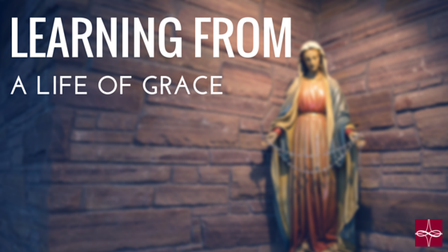

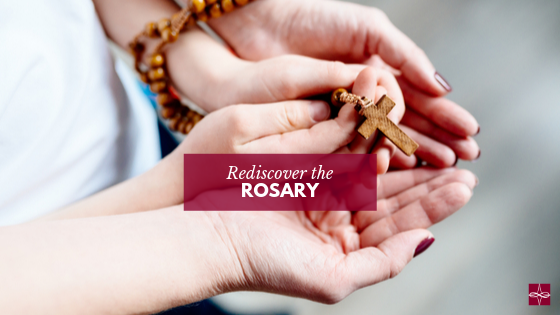

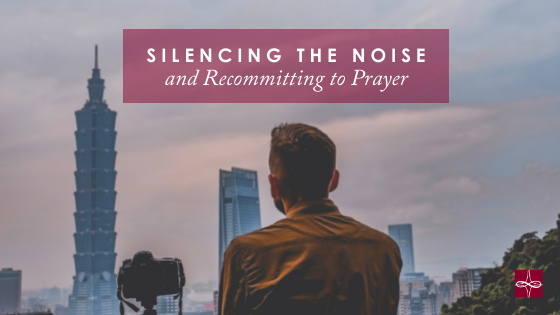

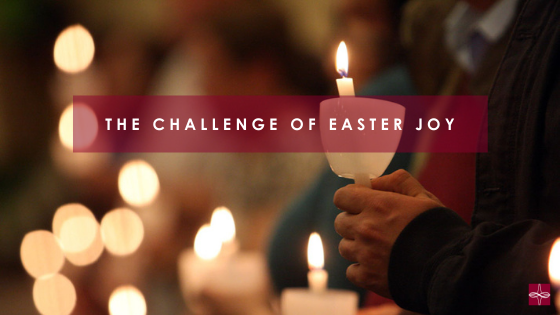

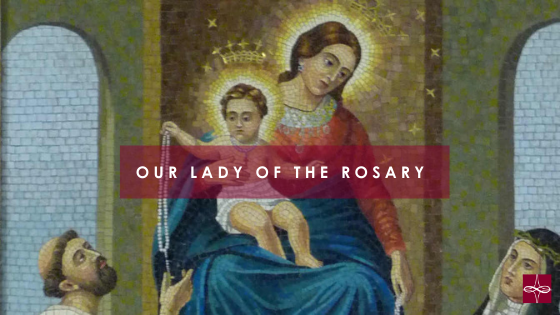




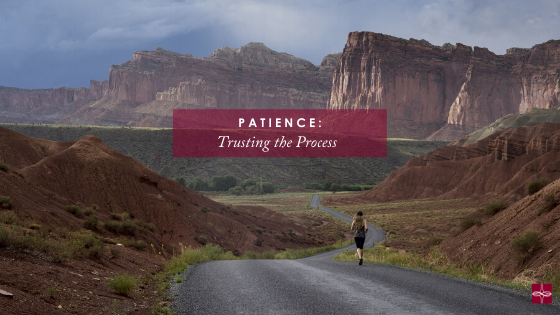





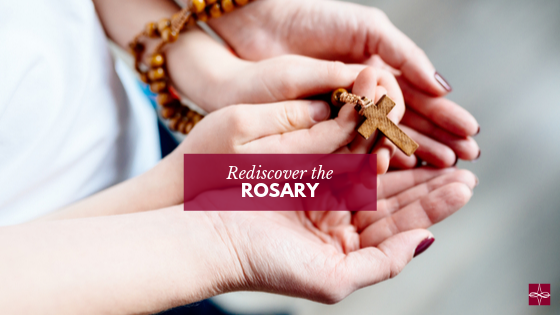



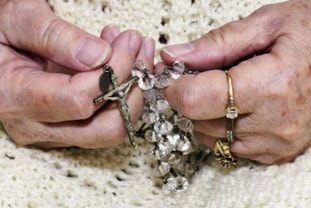
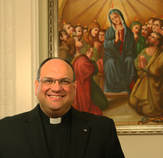




 RSS Feed
RSS Feed